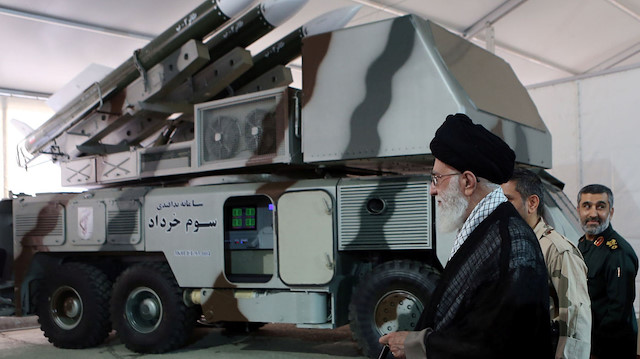
MARITIME SECURITY
Iran denies responsibility for the attacks on oil tankers in the Gulf. On Monday, the United States said it was building a coalition with allies to protect Gulf shipping lanes.
A coalition of nations would provide both material and financial contributions to the program, a senior U.S. State Department official said, without identifying the countries.
"It's about proactive deterrence, because the Iranians just want to go out and do what they want to do and say hey we didn't do it. We know what they've done," the official told reporters, adding that the deterrents would include cameras, binoculars and ships.
U.S. Secretary of State Mike Pompeo is in the Middle East to discuss Iran with the leaders of Saudi Arabia and the United Arab Emirates, two Sunni Muslim allies aligned against Shi'ite Muslim Iran.
"Freedom of navigation is paramount," Pompeo tweeted from the Saudi city of Jeddah.
Iran's Zarif, in his Twitter post, said: "@realDonaldTrump is 100% right that the US military has no business in the Persian Gulf. Removal of its forces is fully in line with interests of US and the world."
It was an apparent reference to a tweet in which Trump said other countries should protect their own oil shipping in the Middle East rather than have the United States protect them.
The United States accuses Iran of encouraging allies in Yemen to attack Saudi targets.
In a joint statement on Monday, the United States, Saudi Arabia, the UAE and Britain expressed concern over Middle East tensions and the dangers posed by Iranian "destabilizing activity" to peace and security in Yemen and the region.
The confrontation between Iran and the United States heated up last Thursday when Iran shot down an American drone, saying it had flown over its air space.
Washington, which said the drone was in international skies, then appeared to come close to attacking Iranian military targets, with Trump saying that he aborted a retaliatory air strike 10 minutes before it was to go ahead.
Trump said he decided the strike would have killed too many people.
Both Iran and the United States have said they do not want war and both have suggested they are willing to talk while demanding the other side move first.
Allies of the United States have been calling for steps to defuse the crisis, saying they fear a small mistake by either side could trigger war.
"We are very concerned. We don't think either side wants a war, but we are very concerned that we could get into an accidental war and we are doing everything we can to ratchet things down," British Foreign Secretary Jeremy Hunt said.
U.S. allies in Europe and Asia view Trump's decision to abandon the nuclear deal as a mistake that strengthens hardliners in Iran and weakens the pragmatic faction of President Hassan Rouhani.
France, Britain and Germany have sent an official diplomatic warning to Iran if Tehran reduces its compliance with the accord, two European diplomats said on Monday.
It was not immediately clear what consequences Iran might face for non-compliance.














